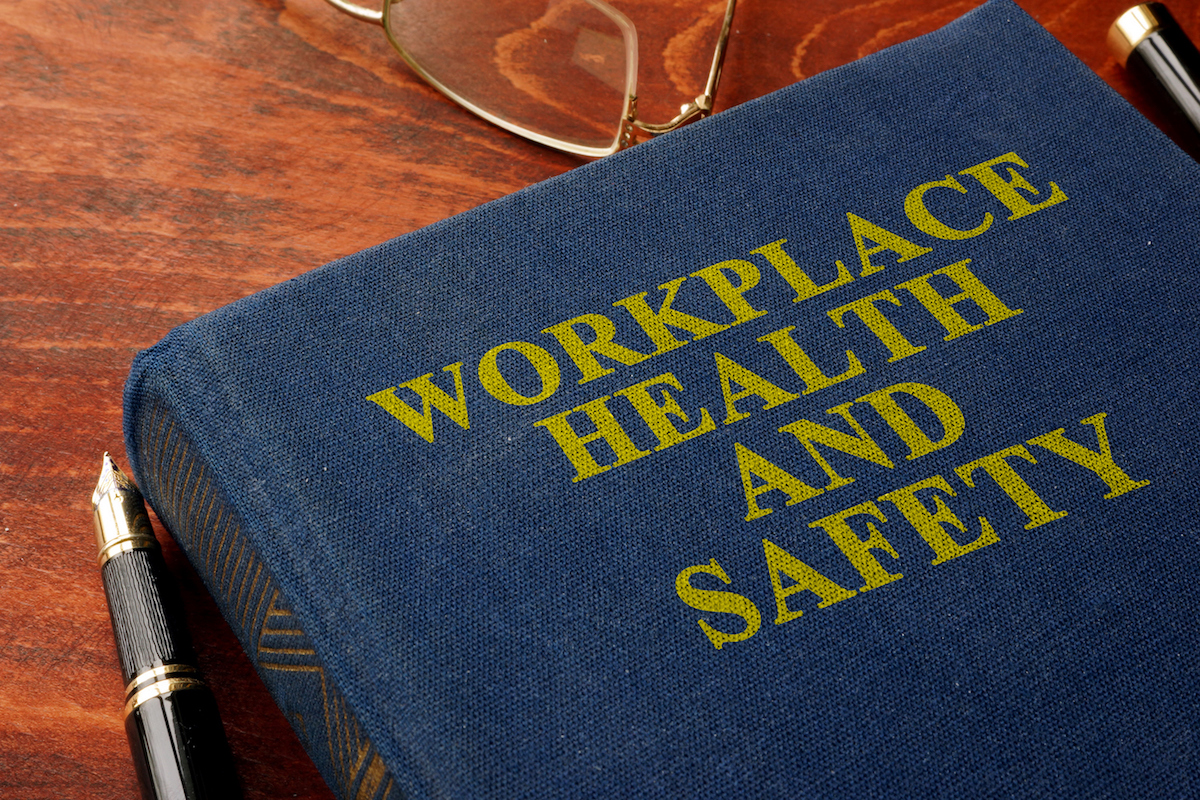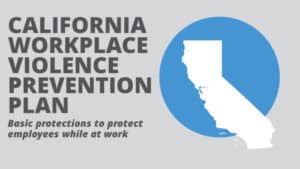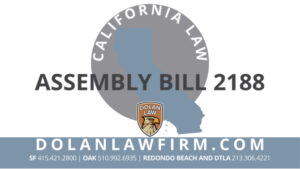
Today’s question comes from Janet M. in South San Francisco who asks: “I work for a large contracting firm that does business with the State and other large businesses doing civil engineering and building projects. I am not management and I am union member. I have developed a condition known Chronic Obstructive Pulmonary Disease (COPD) which affects my breathing. Some of the jobs that we work on have a lot of dust and others use chemical adhesives which make it difficult for me to breath. My job doesn’t involve doing any of the work that is directly involved with these irritants; but, I am occasionally required to go onto job sites where I am exposed.
There are 3 other people that do my job too and I am the second most senior. They could do some job shifting that would allow me to pick up part of my co-worker’s responsibilities, and they mine, so I would not be exposed to these triggers. My doctor recommended I ask for this change in my job, so I asked my supervisor who said no. When I asked her if I could then go home sick when I have a COPD attack she said no. She is mad at me because I have had to take afternoons off when I am exposed to these conditions as it is difficult for me to breath.
She says that I have exceeded the number of absences which are allowed under the collective bargaining agreement (CBA) and if I miss another day of work she is going to move to have me terminated for “job abandonment.” I said I was going to go to an attorney and she said that I was bound under my union’s CBA agreement to use the administrative process set forth in the CBA. My Union Rep is of no help and says that they aren’t going to file a grievance unless and until I am fired. This isn’t fair. What rights do I have?”
Dear Janet, some of these questions, such as yours, are like the law school exams I took 26 years ago. Your question involves a complex analysis under the American’s with Disabilities Act (ADA) and its California equivalent, the California Fair Employment and Housing Act (FEHA). Since California’s law is more expansive than the ADA and provides greater worker protections I will focus on FEHA in my analysis.
While I have handled hundreds of similar cases this is not a full legal evaluation and you should contact a trial lawyer with experience in handling these cases. Additionally, your question involves the California Family Rights Act which allows people to take up to 12 weeks of leave for their, or a close family member’s, serious health condition or child bonding leaving. There simply is not enough space in my column to address these issues this week.
First your boss is wrong in claiming the CBA precludes you from seeking remedies outside that agreement. Your avenue for relief is not limited to the CBA grievance process. An arbitration agreement may affect that; but, for the purposes of this analysis, I will assume that there is no arbitration where you waived your rights to bring a civil action and a right to a jury trial.
State law discrimination claims based on protected classifications such as race, age, sex, disability, are not preempted (barred) by a CBA unless interpretation of the CBA is required. Here you have not provided any facts that lead me to believe that you are making claims which would be covered by the CBA therefor it’s likely that the CBA does not prevent you from pursuing civil remedies with a private lawyer in court or through the Fair Employment and Housing Agency which can handle complaints of this type.
Janet, your case appears to fall squarely within FEHA’s disability protections. To qualify as a disabled person entitled to protection you must show that you are limited in one or more major life functions and that you are otherwise qualified to perform the essential functions of your job with a reasonable accommodation. Your COPD should qualify you as disabled as it interferes with your breathing and working. Given that you have been preforming the essential functions of your job, it appears that you qualify as a person with a disability entitled to protection under FEHA. Reasonable accommodations can include time off work, restructuring of your job to eliminate or reassign non-essential job functions and other modifications. An employer is not required to create a new job or disregard a seniority system set out in a CBA.
An employer who has reason to know or suspect a disability, and every employee with a disability who seeks an accommodation, must engage in a good faith interactive process to try and identify accommodations that might allow continued employment. However, an employer’s obligation to accommodate a disability is not unlimited and the employee is not entitled to insist on a specific accommodation and refuse to consider others.
An employer can refuse an accommodation if it is “unreasonable.” Some examples where requested accommodations have been upheld as unreasonable include the taking of indefinite leave and demanding that there be a reassignment to a different supervisor. A determination of reasonableness considers the impact of the accommodation on the employer including the size of the employer, their financial resources, the nature of the accommodation etc. The larger the employer the more difficulty they have in advancing an unreasonableness defense.
If the interactive process breaks down the law will look to see who is responsible for the breakdown. If it’s the employer, then they may be held liable for damages. If it’s you, you may be precluded from continued pursuit of your legal action. Your employer is precluded from retaliating against you for requesting an accommodation.
Janet, in summary I think your rights are being violated. Go immediately to HR and make sure they know that you have a disability, that you need an accommodation and that you believe that you are being discriminated against, harassed and retaliated against by your supervisor because of your disability. Perhaps giving them a copy of this article might help. Also, I strongly recommend that you contact a plaintiff’s employment trial lawyer ASAP to help you through this process. Good luck!










